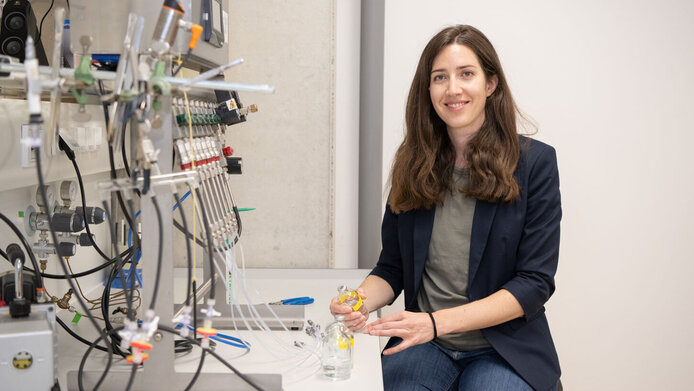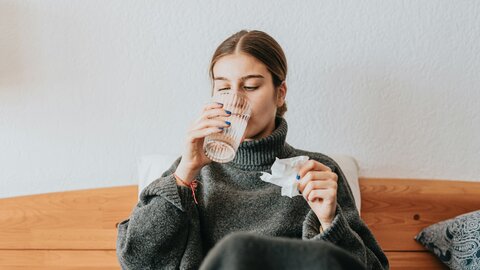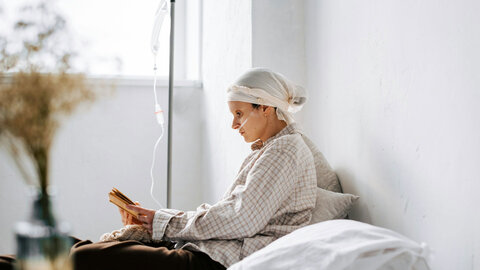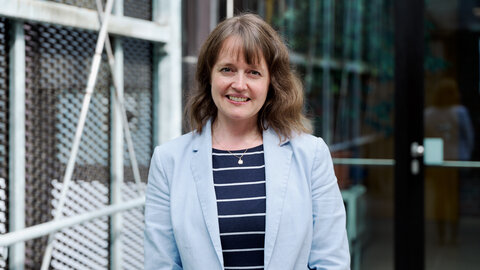What initial steps do you plan to take?
Bayer: I will establish my first independent research group to investigate these questions. We will be mainly conducting field research to take methane measurements in the environment, for example in the Austrian lakes Mondsee and Attersee. These lakes are particularly interesting for my research because Lake Attersee has much lower nutrient levels than Lake Mondsee, even though they are connected.
We also plan to take measurements in the Mediterranean Sea off the French coast, as well as in the Baltic Sea during a week-long research cruise with our cooperation partner at the Leibniz Institute for Baltic Sea Research.
Microbial methane production rates will be measured using different isotope approaches: Microorganisms take up a compound and metabolize it, releasing methane as a by-product. We provide so-called precursor compounds labelled with heavy isotopes, such as C-13. We want to find out if methane is released from these compounds and if so, how fast? We then measure in the laboratory how much methane (CH4), which is also a carbon compound, contains the heavy isotope. To find out which microorganisms produce methane, we use DNA and RNA sequencing methods.
What will the START Award mean for your research activities?
Bayer: The award allows me to take a further step towards independence by giving me the resources to become an independent group leader and hire three team members.






